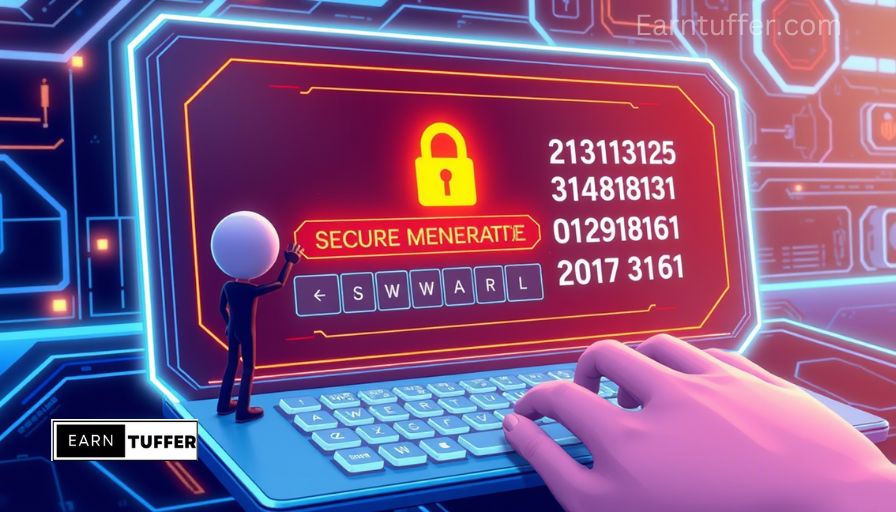In an era where cyber threats are increasingly sophisticated, securing your digital life starts with one critical step: creating strong, unique passwords. A password generator is a powerful tool designed to simplify this process, ensuring your accounts remain protected against hackers, data breaches, and identity theft. Whether you’re managing personal emails, banking portals, or business systems, leveraging a password generator is no longer optional—it’s a necessity. In 2025, advancements in cybersecurity have made these tools more accessible, intelligent, and user-friendly than ever before.
Random Password Generator
Why Strong Passwords Matter in 2025
Weak passwords remain one of the leading causes of data breaches. According to the National Institute of Standards and Technology (NIST), over 80% of hacking-related breaches stem from compromised credentials. Simple passwords like “123456” or “password” are easily cracked by brute-force attacks, leaving sensitive information vulnerable. A password generator eliminates guesswork by creating complex, randomized strings of characters that are nearly impossible to crack.
Modern password generators also address evolving threats like credential stuffing—where stolen login details from one site are used to access accounts on others. By ensuring each password is unique and robust, these tools act as a first line of defense against cyberattacks.
How Does a Password Generator Work?
A password generator uses algorithms to produce high-entropy passwords that combine uppercase letters, lowercase letters, numbers, and special symbols. Here’s a breakdown of its core functionality:
Entropy and Randomness
Entropy measures the unpredictability of a password. A generator uses cryptographic methods to maximize entropy, ensuring passwords cannot be guessed or replicated.
Customizable Length
Most tools let users specify password length (e.g., 12–32 characters), with longer passwords offering enhanced security.
Character Variety
Advanced generators avoid predictable patterns by mixing letters, numbers, and symbols. For example, a generated password might look like 9x@Lq#7vK$2E.
Avoiding Common Pitfalls
Unlike humans, generators don’t reuse passwords or rely on personal details (birthdays, names), which hackers exploit.
Types of Password Generators
Not all password generators are created equal. Here’s a comparison of the most common types:
1. Built-In Browser Generators
Modern browsers like Chrome and Firefox offer password managers that generate and save credentials automatically during account creation. While convenient, these tools often lack advanced features like cross-device sync.
2. Dedicated Password Managers
Platforms like Bitwarden, 1Password, and Dashlane combine password generation with encrypted storage, two-factor authentication (2FA), and breach monitoring. These are ideal for managing hundreds of accounts securely.
3. Standalone Online Tools
Websites like Random.org or Passwordsgenerator.net provide free, ad-supported generators. However, they may pose risks if the service is compromised or lacks HTTPS encryption.
4. Hardware-Based Generators
Devices like YubiKey or Titan Security Key generate one-time passwords (OTPs) for physical authentication. These are often used in high-security environments.
Key Features of Modern Password Generators
In 2025, top-tier password generators go beyond basic password creation to offer:
Biometric Integration
Use fingerprint or facial recognition for quick, secure access.
AI-Powered Suggestions
Analyze common password patterns to avoid weak combinations.
Offline Functionality
Generate passwords without internet access, reducing exposure to online threats.
Cross-Platform Sync
Access passwords seamlessly across devices via cloud storage.
Password Health Reports
Flag reused or outdated passwords for immediate updates.
Best Practices for Using a Password Generator
To maximize security, follow these guidelines:
Use Unique Passwords for Every Account
Reusing passwords across platforms is a critical vulnerability. A generator ensures each credential is distinct.
Enable Two-Factor Authentication (2FA)
Pair generated passwords with 2FA (e.g., SMS codes, authenticator apps) for added protection.
Store Passwords Securely
Use a reputable password manager with end-to-end encryption to avoid storing credentials in unsecured locations (e.g., sticky notes).
Update Passwords Regularly
Change passwords every 6–12 months, especially for high-risk accounts like banking or email.
Avoid Writing Down Passwords in Plain Text
If you must record a password, store it in an encrypted file or physical vault.
Common Mistakes to Avoid
Even with a password generator, errors can undermine security:
Choosing Short Passwords
Opt for at least 12 characters to resist brute-force attacks.
Ignoring Multi-Factor Authentication
A strong password alone isn’t enough; layer defenses with 2FA.
Using Untrusted Tools
Free online generators may log your data. Stick to reputable providers.
Forgetting Master Passwords
If your manager requires a master password, memorize it or store it securely.
FAQs About Password Generators
Q1: Are password generators safe to use?
A: Yes, if you choose a reputable service. Look for open-source tools like Bitwarden or widely trusted managers like 1Password.
Q2: Can I reuse passwords for low-risk accounts?
A: No. Even “low-risk” accounts can be entry points for hackers. Always use unique passwords.
Q3: How often should I change passwords?
A: Update passwords every 6–12 months, or immediately after a data breach.
Q4: What if I forget my master password?
A: Most managers don’t store master passwords—you’ll need to reset your vault and start over.
Q5: Do I need a password manager to use a generator?
A: Not necessarily. Some generators work standalone, but managers offer better organization and security.
Conclusion: Secure Your Digital Life with a Password Generator
In 2025, cyber threats are more prevalent than ever, making robust password management essential. A password generator is a simple yet powerful tool to protect your online identity, financial assets, and sensitive data. By combining strong, randomized passwords with best practices like 2FA and regular updates, you can stay ahead of hackers and ensure peace of mind in an increasingly connected world.
